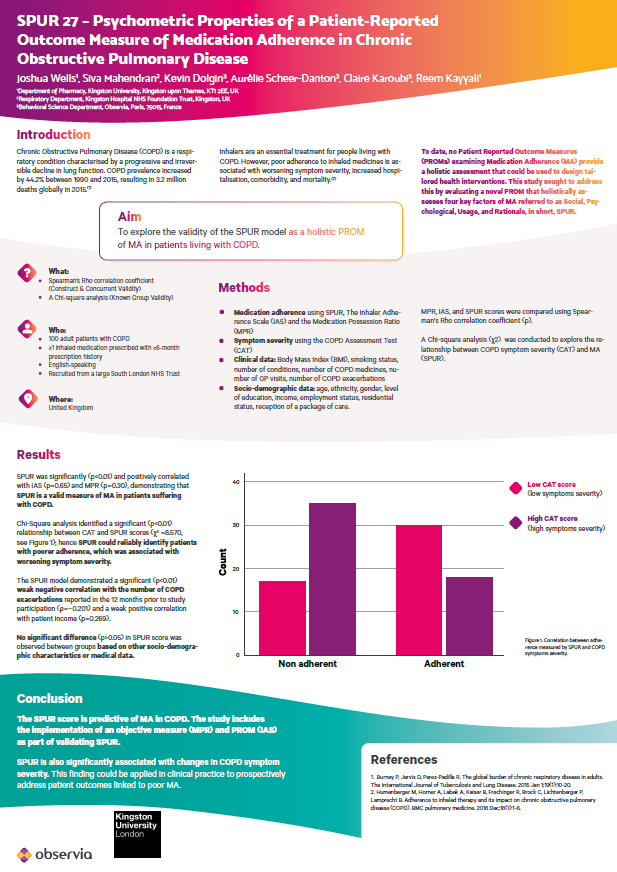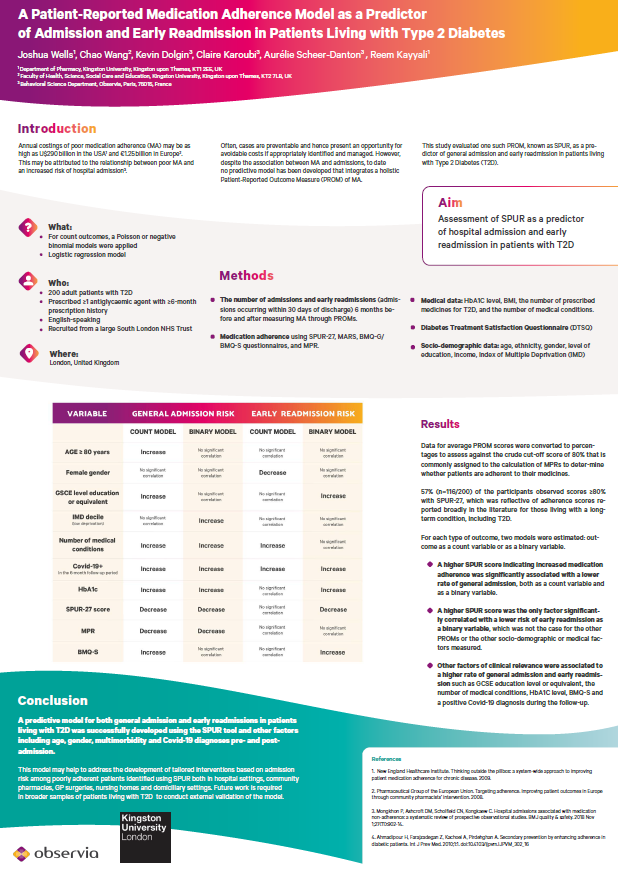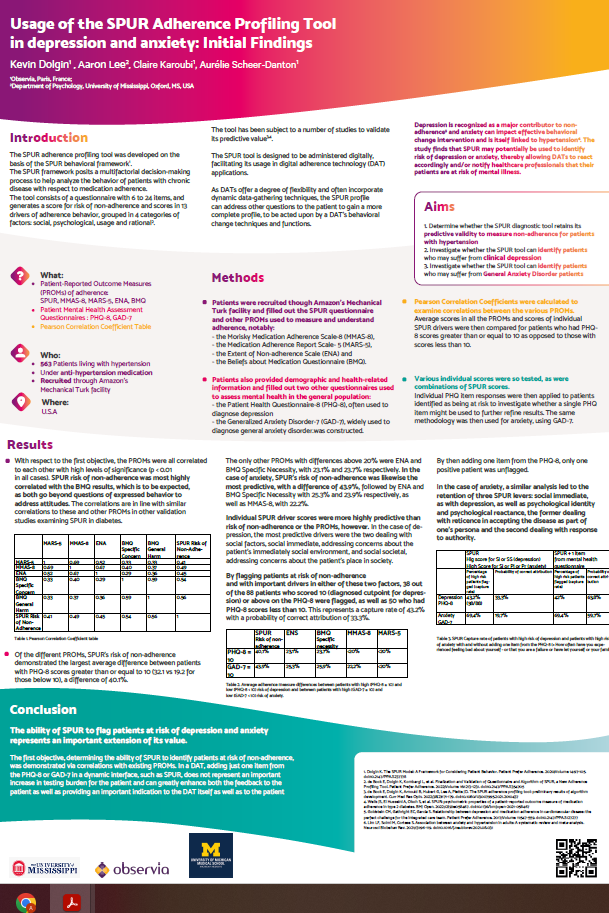Research studies
SPUR was developed as a novel PROM to better understand adherence and its drivers, valid across all chronic conditions and cultures. The SPUR adherence model and tool continue to be tested and proven in additional pathologies, geographies, and languages. Indeed, with SPUR, instead of having one point of data on non-adherence, through one questionnaire, a researcher can paint a picture of a population with 18 points of data.
SPUR is increasingly used in health economics (HEOR) to evaluate the long-term impact of adherence-improving interventions and to analyze correlations between its 18 adherence drivers and other factors, including social determinants of health (SDoH).
Clinical development
Dropping out of a clinical trial is a health behavior. Patients who choose to stop participating in a trial always have reasons for doing so.
SPUR can examine patients’ social determinants of health, identify their risk factors to clinical study dropout and help personalize interventions to reduce non-adherence to protocol’s design. The tool also serves observational studies.
Medical practice
Healthcare professionals (HCPs) have deep patient insights, but time constraints and complex health behaviors can be challenging.
We developed SPUR4Care in which SPUR provides objective behavioral data and support recommendations that are directly actionable during medical appointment or health education sessions. It facilitates team discussions and help HCPs to adjust their wording in real-time for a better patient support and motivation.
For more information, contact us to learn more at hello@spur4care.com or visit www.spur4care.com (French only).
Market research
SPUR is a highly effective market research tool for pharmaceutical companies and other industrials. Integrated into Observia’s patient journey mapping methodologies, it enhances insights into patient attitudes and health behaviors.
Learn more on SPUR use case in patient journey mapping.
Patient experience
SPUR behavioral data supply the foundation for truly personalized, impactful, and patient-centric digital services. Industrials can develop tailored patient services to help chronic patient being engaged throughout their journey and cultivate the best habits to improve their quality of life.
Learn more on SPUR use cases for industrials.



